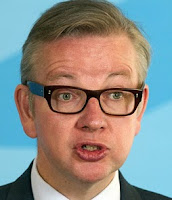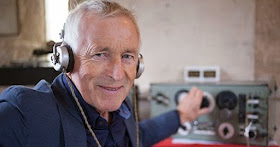Roy Greenslade on his MediaGuardian blog on the decision by the Independent Police Complaints Commission to reject an appeal against the harassment notice issued by the Met to Croydon Advertiser chief reporter Gareth Davies, who was investigating a fraudster (top): "This decision by the IPCC is a disgrace. Davies acted as any reporter worth his or her salt should have done. He approached a convicted person and, when rebuffed, he did no more than send a follow-up email. This was not harassment. It was journalism."
Croydon Central MP Gavin Barwell in a letter to the IPCC: "Mr Davies is a well-regarded local reporter who was investigating a story that was clearly in the public interest. The individual that Mr Davies was investigating complained to the police who, without checking whether Ms Desai’s claims were true, issued a warning to Mr Davies advising him to desist. This is a very worrying attack on press freedom and to that end I have sent a copy of this letter to the Home Secretary, the Secretary of State for Justice and the Secretary of State for Culture, Media and Sports."
David Banks @DBanksy on Twitter: "Peter Preston, ex-Guardian Ed said a reporter's most important quality was persistence. Met Police now define that as one email, one visit."
Press Gazette has launched a petition to have the harassment notice cancelled.
Richard Desmond, in an interview with the Guardian, claims that if he could read just one daily paper, excluding his own titles, it would be the Guardian: “No, I’m not joking. I like the Guardian. I think it tells the truth.”
Sathnam Sanghera in The Times [£] on Katie Hopkins: "Which brings us to the not uncommon theory that Hopkins is damaged in some way. You don’t have to be Oliver Sacks to understand that those who target the vulnerable, as Hopkins does routinely, often turn out to be vulnerable themselves. And journalism, like banking, is one of those trades where dysfunction is actually rewarded."
Steven Swinford in the Daily Telegraph on Justice Secretary Michael Gove's grammar guidance for civil servants: "The guidance also included instructions never to start a sentence with 'however'. However, Mr. Gove himself frequently used that word to start a sentence when he was a journalist."
Former BBC editorial director Roger Mosey in The Times [£]: "BBC local radio identified for its staff its typical target listeners, imagined as a middle-aged couple called Dave and Sue. A leaflet for all local radio stations included a section on their hypothetical attitudes. 'Now it’s an established everyday reality that Dave and Sue live and work alongside and socialise with people from different ethnic backgrounds,' producers were told. 'They are interested in and open-minded about adapting aspects of other cultures into their own lives — in entertainment, medicine, belief, food, clothes and language. Their community-minded attitudes mean they are interested both in projects which advance social cohesion in this country and in international development issues.' It must have been something of a shock to the writers of this leaflet when many real-life Daves and Sues joined Ukip."
Former BBC business editor Jeff Randall in a missive to Mosey, also reported by The Times [£]: “Does anyone in the BBC’s policy unit/Thought Police read Richard Littlejohn? They should. He reflects popular opinion far more accurately than the views of those whose idea of a good night out is reading the Indy over a vegetarian meal in a Somali restaurant.”
Bernie Lunzer president of the US media union News Guild-CWA, in a message of support to NUJ strikers at Newsquest: "What these journalists are fighting for, we are all fighting for. Our members face exactly this kind of greed and arrogance from Gannett and other corporate media owners. They reward top executives with fat salaries and bonuses but plead poverty when it comes to raises for employees, even though they are working harder than ever. In the strongest possible terms, the Guild calls upon Newsquest/Gannett to show its employees the respect they deserve by paying them fair wages, maintaining adequate staffing levels, ending the constant cycle of cuts and reinvesting in its news products."
[£]=Paywall
































